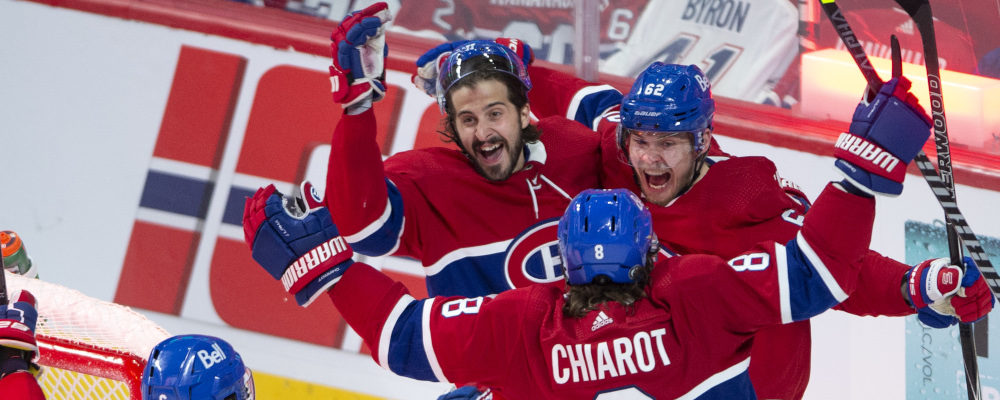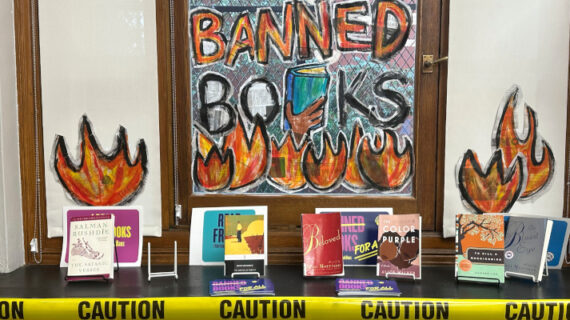How do we know the Montreal Canadiens have made it into the Stanley Cup finals? Suddenly, all of our neighbours are Habs fans.
Cars flying Canadiens flags are parked in seemingly every driveway. Windows have curtains with that familiar red, white, and blue logo. Kids are running around the park in Habs t-shirts. Even the McDonalds cashier is in a jersey.
For Lightning neighbourhoods, the effect is the same. Hockey logos are everywhere. As the Stanley Cup finals reaches its conclusion, these symbols become even more important for those who wear them. The stakes are high.
Now this isn’t an essay defending the Canadiens or the Lightning. Although unafraid to take positions on policy and governance questions, taking a stance on a hockey team is a bit too controversial for The Hub.
But we should defend our flag-flying and jersey wearing neighbours. Regardless of the team they support, they serve as a valuable reminder that we should all look for something to believe in outside of day-to-day political battles and zero-sum culture wars.
Sports fandom is just one symptom of a deeper yearning inside all of us. Although it’s rarely thought about this way, sports are a powerful form of civil society that provides for a true sense of belonging and community.
As sports fans, we are surrounded by people who share a common sense of identity and purpose in one aspect of life. They know and understand why we feel as strongly as we do. Most importantly, they share the hope we have for our favourite team and that enables community bonds to form around that mutual understanding even if we are otherwise marked by individual differences such as class, ethnicity, religion, and so forth.
In a world increasingly defined by intense polarization, sports can be a powerful source of unity that transcends these other divides. Nobody watching a hockey game in a bar asks the person next to him or her how they voted in the last federal election campaign or what they think about tax rates or how they come down on complex moral questions. Cheering on our your favourite team is a bridge across these divides precisely because it permits us a short period of time – sometimes as little as 60 minutes – to be free from politics.
Celebrating a win is easier than mourning a loss but it’s the losses that bring us together. Philosopher and economist Adam Smith wrote in The Theory of Moral Sentiments about the importance of shared experience and mutual sympathy and believed that “the sweetness of… sympathy more than compensates the bitterness of that sorrow.”
That will provide limited solace to Habs fans as their team takes on the gargantuan task of digging themselves out of a 3-0 series deficit tonight against the Lightning. But the underdog story has always been compelling.
It is the plot line of pretty much every sports film. The underdog team fights its way up to the top. A player who never stood a chance becomes a champion. They believed in themselves, and their fans believed in them. The odds were against them, and yet they won. These fictional (and sometimes non-fiction) stories are always about believing that success can achieved out of the impossible.
Not every sports team or player is an underdog. There are great teams and great players who prove their excellence year after year. They are far from perfect, though. Even the greatest athletes have a bad day or a bad season, and it is up to the fans to support them through it. People who do not stand by these hardships are scorned for their lack of loyalty and viewed as unworthy of joining in later victories. To abandon them and be unwilling to suffer along with them is seen as betrayal.
These are features of virtually every community on Earth.
There is a reason why we still talk about belief in sports even though we have heard it all before. When fictional football coach Ted Lasso walked into the locker room of a hopeless team, he wrote the word “believe” on a piece of paper and taped it to the wall. Everyone rolled their eyes. Even those watching the show. It turns out that Ted Lasso was right. What the team needed was to believe in themselves.
This past year and a half has been tough, and we deserve 60 minutes spread over three periods where we just hope for a win. Even if our team is not there this year, and even if we don’t care for hockey and are only watching to see what happens. This is a rare moment when we can set politics and world affairs and vaccinations aside and we get to believe in something bigger than the moment and bigger than ourselves.
The Stanley Cup finals is about so much more than who takes home that shining silver cup. For every player whose name is engraved on the trophy, there were thousands of fans who supported them. Watching the Stanley Cup finals serves to remind us of how connected we are to other people. Every person watching the game is right there with us. Even if we are cheering for different sides.
Wear that Habs jersey or Lightning hat. Cheer loudly and enjoy this moment. Believe that when the buzzer rings it will be a time to celebrate. Know that even if you suffer a loss, it will be a loss felt by thousands of other people.
Win or lose, watching the Stanley Cup finals makes you a part of the team. And there will always be next year to take the title home.




